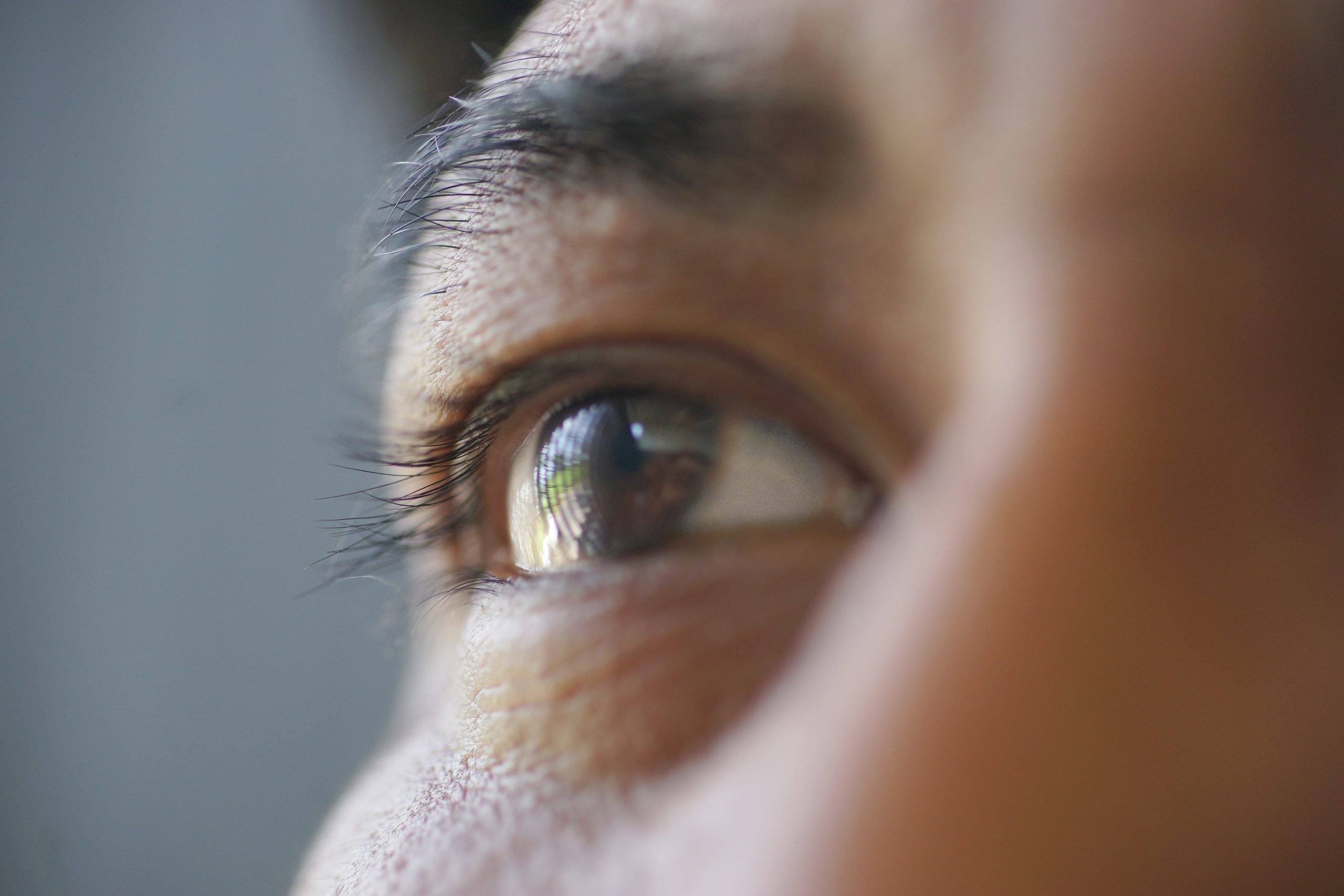
The Link Between Mental Health and Your Vision
 Medical researchers have found close links between eye health and mental health. People with vision impairments often develop mental health problems like anxiety and depression because of the stress of living with their condition. People with mental health problems are also more likely to develop vision issues later in life.
Medical researchers have found close links between eye health and mental health. People with vision impairments often develop mental health problems like anxiety and depression because of the stress of living with their condition. People with mental health problems are also more likely to develop vision issues later in life.
If you have vision problems, it is important to take care of your mental health as well. Seeking help from your doctor, a counselor or an advocacy organization can help you manage the impact of your condition and protect your mental well-being.
How Vision Issues Affect Mental Health
Losing your sight can have a devastating impact on your mental health. Without the ability to see, you will lose a vital sense that plays a key part in your ability to form memories and interact with the world. You will also have to develop new strategies to accomplish everyday tasks like cooking, shopping, and even getting around your home.
A recent study by the Centers for Disease Control and Prevention showed that 1 in 4 adults with vision loss report experiencing anxiety or depression. Younger people with vision loss were five times more likely to develop a mental health condition than people aged 65 or older.
Which Vision Issues Have the Greatest Impact?
Vision problems that lead to blindness or extreme impairment are the most likely to cause mental health problems. These include:
- Diabetic retinopathy
- Age-related macular degeneration
- Glaucoma
- Retinitis pigmentosa
Three of the conditions are also some of the most common vision problems in the United States:
- Age-related macular degeneration affects 1.8 million Americans. 7.3 million are at increased risk of developing the condition in the future.
- Diabetic retinopathy affects 4.1 million Americans, though less than 1 million have a case severe enough to put their vision as risk.
- Glaucoma affects 3 million Americans.
Cataracts affect 20.5 million Americans, making them the most of any of these conditions. However, they do not have the same mental health impact as other serious eye conditions. This may be because cataract treatment is widely available and can completely reverse the effects of the condition.
In most cases, getting treatment getting treatment for these eye conditions improves patients’ quality of life and their mental outlook. However, it does not fully reverse their mental health impacts.
Common Mental Health Issues in the U.S.
Approximately 1 in 4 Americans suffer from some form of mental illness each year. The most common diagnoses include:
- Anxiety disorders, including generalized anxiety disorder, obsessive-compulsive disorder, post-traumatic stress disorder and phobias (18 percent)
- Depressive illnesses, including major depression and bipolar disorder (9.5 percent)
- Schizophrenia (1 percent).
Many people suffer from more than one mental illness at the same time. This is especially likely when someone experiences either anxiety or depression.
Mental Health Disorders and Their Impact on Eye Health
People with existing mental health conditions are also more likely to develop vision issues. For instance:
- People with bipolar disorder or schizophrenia are more likely to develop glaucoma later in life.
- People with major depressive disorder have a greater risk for glaucoma and dry-eye syndrome and age-related macular degeneration.
Researchers don’t yet understand fully the reasons for the link, but they developed two major theories. One involves stress, another has neurological roots.
- Stress is a major factor in the development and progression of many eye conditions, so it is likely that it also plays a role in this case.
- Some researchers believe that certain mental health problems and vision changes have the same neurological roots.
Kids’ Vision and Mental Health
 Children with visual impairments are much more likely to suffer mental health problems (especially anxiety and depression) than children who do not have these difficulties. Girls are statistically more at risk of developing these problems than boys.
Children with visual impairments are much more likely to suffer mental health problems (especially anxiety and depression) than children who do not have these difficulties. Girls are statistically more at risk of developing these problems than boys.
Some of the primary factors that cause mental health problems in visually impaired children include:
- Social difficulties and loneliness
- Reduced mobility
- Reduced ability to take part in age-appropriate leisure activities with peers
- Increased dependency on others, especially adult caregivers
Taking steps to increase your child’s independence and social opportunities can protect or improve their mental health.
- When possible, set up home and school environments with accommodations that make them easier to navigate with a vision impairment, such as high-contrast lighting.
- Teach your child to use assistive devices, such as a cane, braille labels or a guide dog.
Coping with Vision Problems
 There are a few things you can do to make living with impaired vision easier.
There are a few things you can do to make living with impaired vision easier.
- Learn as much as you can about your condition. Ask your doctor for resources or look for articles, videos, and other content from reputable sources online.
- Meet with a therapeutic counselor. Getting support from a mental health professional who is familiar with the effects of vision loss can help you navigate this difficult time.
- Embrace the grieving process. It is normal to feel extreme emotions when losing your sight.
- Explore how the use of assistive devices and adjustment classes can help you maintain your quality of life. Helpful devices may include braille labels, text-to-speech software, hand magnifiers, and smartwatches with speech capabilities. Classes for people with vision impairments can teach you things like how to perform basic household tasks and how to label everyday items for easy identification.
Tips for Healthy Eyes and a Healthy Mind
To keep your eyes and mind healthy:
- Eat well. A balanced diet will provide you with all the vitamins and minerals you need to keep your eyes healthy. Leafy greens (like spinach and kale) and fish that are high in Omega-3 fats (such as salmon and tuna) are especially beneficial.
- Stay active. Physical activity produces mood-boosting brain chemicals and reduces your risk of developing conditions that can cause vision problems, such as diabetes and high blood pressure.
- Do not smoke. Smoking can damage your optic nerve and increase your risk of eye problems like age-related macular degeneration and cataracts.
- Visit your eye doctor regularly. Comprehensive eye exams can identify most vision problems, even in their early stages. If your doctor spots a problem, you can begin treatment immediately to slow the progression of the disease.
How to Get Help
 There are many places to turn if you need help with the mental health effects of vision loss.
There are many places to turn if you need help with the mental health effects of vision loss.
- Ask your doctor for help. They can prescribe medication or refer you to a specialist for further treatment.
- Reach out to national advocacy groups and professional networks devoted to helping people with vision loss. These organizations exist to help connect people experiencing vision loss to mental health professionals who are experienced in handling their unique concerns.
- Consult your insurance company. If you have health insurance, your insurance company can provide you with a list of counselors in your local area whose services it covers under your plan.
- Look into mental health treatment at a local college or university. Many offer free or discounted therapy sessions through their psychology, social work, or counseling departments.
Resources for Mental Health Help
The following resources may also help you improve your mental health:
- This webpage from the National Institute of Mental Health provides a list of hotlines you can call if you are experiencing a mental health crisis and need immediate help.
- Many people who are struggling with both vision and mental health problems find it helpful to speak to people with similar experiences. This list of peer support groups from VisionAware will help you connect with other people who understand what you are going through.
- This article from the Anxiety and Depression Association of America offers some additional strategies you can use to manage your mental health.
- This list of mobile apps from the UCSF Department of Psychiatry and Behavioral Sciences can help keep you actively working toward better mental health with guided activities, wellness data tracking, additional knowledge, and other supports.
References
- Vision Loss: Coping. (August 2018). Cleveland Clinic.
- Don’t Let Glaucoma Steal Your Sight! (November 2020). Centers for Disease Control (CDC).
- Mental Health Disorder Statistics. (2021). Johns Hopkins Medicine.
- Keep Your Eyes Healthy. (May 2021). National Eye Institute.
- Common Eye Disorders and Diseases. (June 2020). Centers for Disease Control (CDC).
- Vision Loss and Mental Health. (September 2021). Centers for Disease Control (CDC).
- The Impact of Vision Loss. (September 2016). Making Eye Health a Population Health Imperative: Vision for Tomorrow.
- Eyes hint at hidden mental-health conditions. (April 2019). Nature.
- Mental Health among Children and Young Adults with Visual Impairments: A Systematic Review. (September 2017). Journal of Visual Impairment & Blindness.
- A Global Assessment of Eye Health and Quality of Life: A Systematic Review of Systematic Reviews. (February 2021). JAMA Ophthalmology.
- Longitudinal Associations of Self-reported Vision Impairment With Symptoms of Anxiety and Depression Among Older Adults in the United States. (May 2019). JAMA Ophthalmology.
- Association of ocular diseases with schizophrenia, bipolar disorder, and major depressive disorder: a retrospective case-control, population-based study. (October 2020). BMC Psychiatry.
- Mental stress as consequence and cause of vision loss: the dawn of psychosomatic ophthalmology for preventive and personalized medicine. (May 2018). EPMA Journal.
Written by: MyVision.org an effort by a group of expert
ophthalmologists and optometrists to provide
trusted information on eye health and vision.
